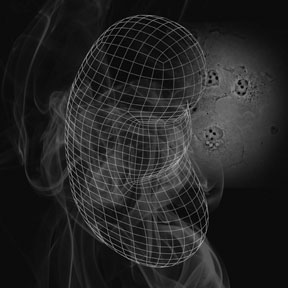New measures to treat kidney cancer
The US Food and Drug Administration (FDA) recently approved the use of oral Votrient (pazopanib) to treat end-stage renal cell carcinoma. The new drug is designed to prevent proliferation of nourishing vessels.
 According to the FDA, about 49,000 people have diagnosed kidney cell carcinoma and 11,000 have died this year.
According to the FDA, about 49,000 people have diagnosed kidney cell carcinoma and 11,000 have died this year.
Results of clinical trials in 435 patients showed that the mean time before recurrence or pre-death tumors in Votrient users was 9.2 months, compared with 4.2 months in the non-pill group.
Votrient side effects may include diarrhea, hypertension, hair color changes, nausea, vomiting, fatigue, stomach aches and headaches. The drug may also be toxic to the liver, so people taking Votrient should be closely monitored for liver function. Drugs can also cause heart rhythm problems. Due to harm to the fetus, Voltrient should not be used in pregnant women.
- Hope for the treatment of kidney cancer
- Detection of enzymes for effective treatment of kidney cancer
- All you need to know about kidney stones
- New drugs treat kidney and stomach cancer
- Detection of genes that cause kidney cancer in children
- 6 signs of kidney infection: Recognize with the naked eye, just need to look carefully
- What if people live with only one kidney until the end of their lives?
- Recovering drugs to treat cancer causing kidney toxicity
- America: Detecting new antibodies that treat 7 types of cancer
- New hope for kidney failure
- Moderate alcohol consumption may reduce the risk of kidney cancer
- There is a link between Agent Orange and kidney cancer
 Green tea cleans teeth better than mouthwash?
Green tea cleans teeth better than mouthwash? Death kiss: This is why you should not let anyone kiss your baby's lips
Death kiss: This is why you should not let anyone kiss your baby's lips What is salmonellosis?
What is salmonellosis? Caution should be exercised when using aloe vera through eating and drinking
Caution should be exercised when using aloe vera through eating and drinking